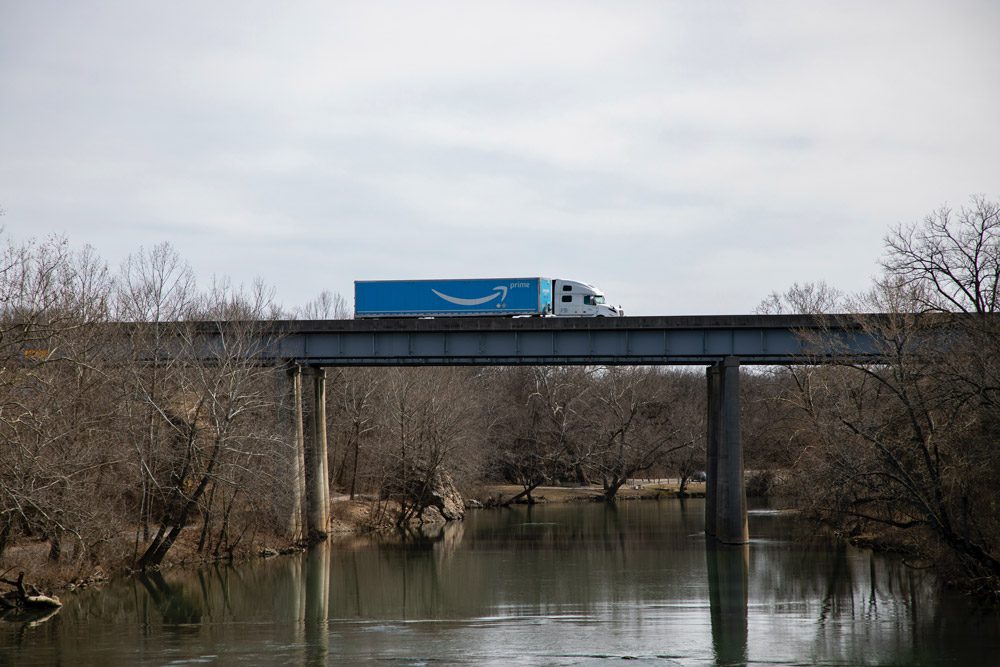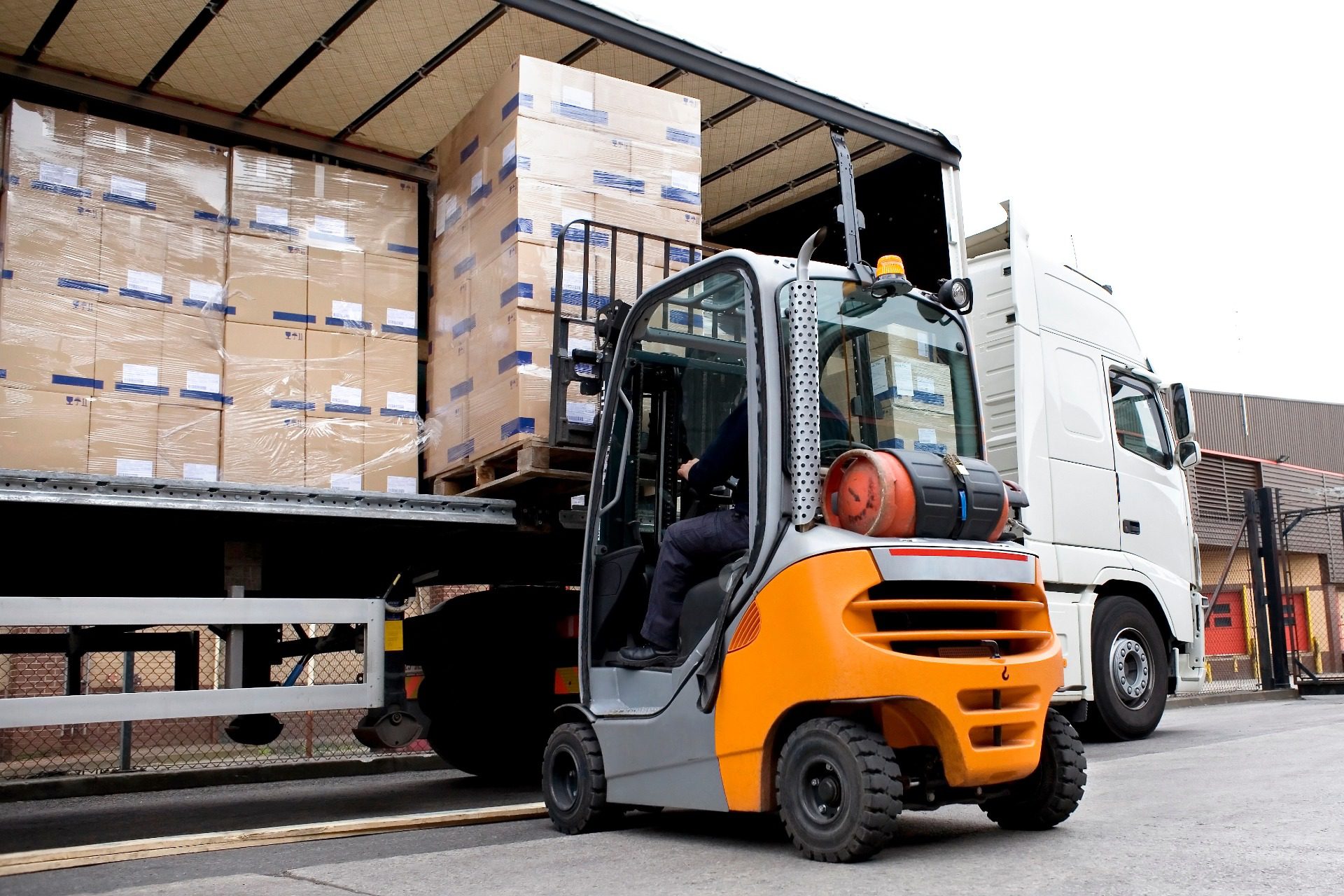There’s no denying the massive market effect that Amazon has seized in recent years. Amazon and other eCommerce platforms have completely uprooted the way consumers shop, purchase goods, and receive said products. Not only has Amazon reshaped the way consumers purchase items, but it’s also transformed the customer’s expectations of shipping with the popularity of Amazon Prime and its free two-day shipping options. As consumers, we want to receive our items reliably and quickly, and merchants have had to get creative in their order fulfillment processes to keep up with Amazon. Luckily, Amazon opens its eCommerce doors to host countless small businesses that would like to sell their items on its worldwide platform. Amazon sellers have a few options in terms of Amazon-related fulfillment, Fulfilled by Merchant (FBM) and Fulfilled by Amazon (FBA).
In this article, we’ll explore what it means to choose an FBM model, the differences between Amazon FBA and Amazon FBM, as well as how ShipCalm can help streamline order fulfillment processes for online businesses.
- What is Fulfilled by Merchant
- Pros and Cons of Fulfilled by Merchant
- FBM vs FBA
- Seller Fulfilled Prime
What is Amazon Fulfilled by Merchant?
Amazon FBM is a fulfillment option available through Amazon that allows online sellers to market and sell their items through Amazon’s marketplace while still claiming liability for shipping and delivery logistics. To put it simply, if you’re an online business looking to sell your goods through Amazon you would always begin with an FBM inventory model before moving toward a Fulfilled by Amazon arrangement. While online sellers are certainly able to hit cruise control on many of their fulfillment processes with an FBA arrangement, more and more businesses are turning toward an FBM model to gain more control over their inventory management, shipment processes, and customer service.
One of the best parts of Amazon is its worldwide exposure and limitless clientele that can gain exposure to what a business has to offer. One of the biggest concerns facing merchants under an FBA model is that their level of control is ultimately very limited, Amazon is the one holding the steering wheel in terms of packaging, deliveries, and brand identity. If a merchant is first beginning, or perhaps simply wants to keep a close watch on the progress and logistics of inventory fulfillment, they may benefit more from an FBM model.
Pros and Cons of Fulfilled by Merchant
Every online business is different, and choosing the correct fulfillment model should be centered around business needs, investment strategies, and customer expectations. Some of the largest advantages that stand out for Amazon FBMl include:
- Exposure – As we’ve said, Amazon has a global reach that is difficult to compete with, especially when selling online. Selling through Amazon through an FBA model allows sellers to gain that exposure and reach an audience they may have missed without Amazon’s online marketplace.
- Control of branding – For a new business, brand awareness can make or break a seller’s overall success. FBA orders are shipped in Amazon-branded packaging, but FBM shipments allow the business owner to use their own labels, logos, and packaging to develop and expand brand awareness.
- Reduced Costs – When comparing the two, FBA costs more. Luckily, Amazon provides a cost calculator to see what FBA prices can be anticipated, and for many businesses, an FBM model makes more financial sense. Choosing a third-party logistics service can also lower shipping prices.
- Better Customer Service – Amazon customer service is known to be slow, detached, and at times simply unreliable. An FBM model allows sellers to have a better idea of customer satisfaction and takes Amazon out of the equation. Whether it is a 3PL company like ShipCalm handling customer complaints or the owner themself, it’s still valuable to have a good sense of the actual satisfaction levels of a business’ customers.
Disadvantages of Fulfilled by Merchant
As with any inventory fulfillment option, there are natural disadvantages that may arise within customer satisfaction practices. Some of the most prominent drawbacks and points to consider before choosing Amazon’s FBM model include:
- No Amazon Prime Badge – While a strong shipping partner such as ShipCalm can help speed up shipping times, losing the Prime badge via Amazon can instantly sway certain customers from being interested. Sellers choosing an FBM model must still maintain consistent and speedy shipping times, and without an FBA model that responsibility is solely theirs to claim.
- Increased Costs – It’s important to consider overall savings when choosing one of Amazon’s fulfillment options as it’s possible to increase costs through an FBM model if there is an excess of inventory. If the seller has a lot of merchandise sitting in a warehouse not moving they are paying storage fees on that merchandise, so having an accurate idea of inventory management is crucial before choosing an FBM model.
- Seller Liability – The best and worst part of Amazon FBM is seller liability. Amazon FBA handles shipping and returns, but in an FBM arrangement, all of that falls on the seller. Luckily, a proper shipping partner such as ShipCalm can help alleviate some of these responsibilities and ensure items arrive in a timely and efficient manner.
FBM vs FBA
Now that we understand Amazon Fulfilled by Merchant, let’s explore the differences between FBM and FBA and Amazon’s fulfillment characteristics. As the seller, it ultimately comes down to what level of control you’d like to have within the shipping and delivery of goods. When items are fulfilled by the merchant, the seller is responsible for shipping out items on time, as well as packaging and warehousing these items. This provides many opportunities for branding and close-knit customer relationships, which Amazon simply won’t have the time to provide.
FBA is great for those that prefer to completely streamline their fulfillment processes, Amazon covers all shipping logistics and handles product fulfillment completely. A substantial caveat being that once the customer receives the merchant’s items at their doorstep they will look down and first see Amazon’s logo, branding, and packaging. This is an important thing to consider as the seller, choosing an FBA model can potentially save merchants money but can come at the price of marketing and brand awareness.
Seller Fulfilled Prime
Outside of Fulfilled by Merchant and Fulfilled by Amazon options available, the other popular choice among merchants is to go with a Seller Fulfilled Prime, or SFP for short. Seller Fulfilled Prime is a middle ground between FBA and Amazon FBM fulfillment options and allows merchants to benefit from many of the Prime-related perks of working with Amazon for fulfillment purposes, while also claiming many of the liabilities and control of warehousing and fulfilling orders independently.
Merchants must apply with Amazon to determine eligibility for a SFP relationship, qualification is determined by standard delivery turnaround as well as Amazon shipping service compliance. Qualified merchants can no longer fully rely on Amazon for shipping and fulfillment services but are still able to market their goods through Amazon’s marketplace, ship independently, and display a badge for Prime-related delivery options. This is great for businesses that struggle to deliver their items to one of Amazon’s fulfillment centers but is only good for merchants that know they can comply with Amazon’s shipping standards and deadlines despite having those same fulfillment centers.
Let ShipCalm be Your Partner for Your FBM Shipments
As an online business or new ecommerce company, it’s only natural to want to choose a fulfillment model that will save the business money, ensure items arrive in a safe and timely manner and support long-term growth. Especially for those looking to gain the exposure that Amazon can offer, it’s crucial to understand the different fulfillment services available to know what your business would benefit from the most. ShipCalm is a third-party logistics service that offers fulfillment services and can also help businesses streamline their entire inventory management. Choosing between Amazon Fulfilled by Merchant agreement, Fulfilled by Seller, and Fulfilled by Amazon is simple when you have a 3PL service that can assist in making the smartest decisions for a business’ goals.
ShipCalm makes it simple to understand Amazon FBM and select the most effective fulfillment service for your business, whether it’s a thriving and experienced company or a new and small online business. Our experts can easily identify areas for savings and long-term growth while also simplifying the process of warehousing, delivering, and managing a business’ inventory. Curious about how ShipCalm can help you? Contact one of our passionate team members to get a custom quote today to learn more.




